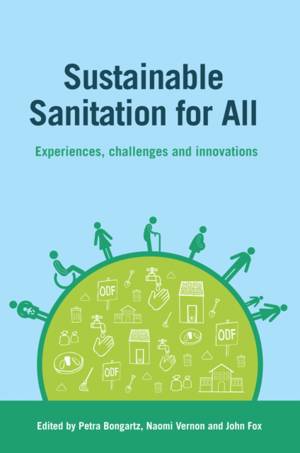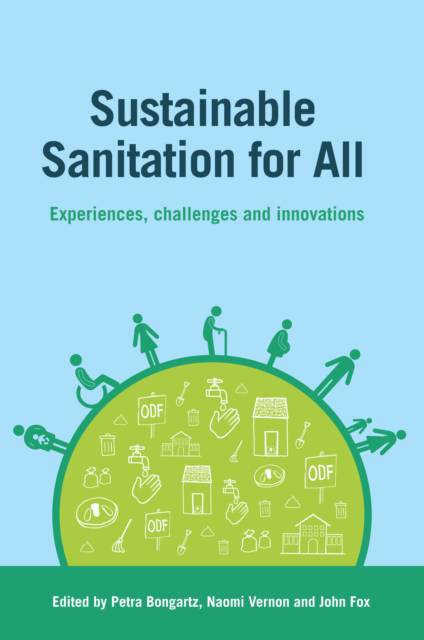
Je cadeautjes zeker op tijd in huis hebben voor de feestdagen? Kom langs in onze winkels en vind het perfecte geschenk!
- Afhalen na 1 uur in een winkel met voorraad
- Gratis thuislevering in België vanaf € 30
- Ruim aanbod met 7 miljoen producten
Je cadeautjes zeker op tijd in huis hebben voor de feestdagen? Kom langs in onze winkels en vind het perfecte geschenk!
- Afhalen na 1 uur in een winkel met voorraad
- Gratis thuislevering in België vanaf € 30
- Ruim aanbod met 7 miljoen producten
Zoeken
Sustainable Sanitation for All
Experiences, Challenges and Innovations
€ 144,95
+ 289 punten
Omschrijving
Great strides have been made in improving sanitation in many developing countries. Yet, 2.4 billion people worldwide still lack access to adequate sanitation facilities and the poorest and most vulnerable members of society are often not reached and their specific needs are not met. Moreover, sustainability is currently one of the key challenges in CLTS and wider WASH practice, subsuming issues such as behaviour change, equity and inclusion, physical sustainability and sanitation marketing, monitoring and verification, engagement of governments, NGOs and donors, particularly after open defecation free (ODF) status is reached, and more. Achievement of ODF status is now recognised as only the first stage in a long process of change and sanitation improvement, with new challenges emerging every step of the way, such as how to stimulate progress up the sanitation ladder, how to ensure the poorest and marginalised are reached, or how to maintain and embed behaviour change. There have been several useful studies on sustainability that have highlighted some of these different aspects as well as the complexities involved. This book develops these key themes by exploring current experience, practices, challenges, innovations and insights, as well as identifying a future research agenda and gaps in current knowledge. Describing the landscape of sustainability of CLTS and sanitation with reference to the Sustainable Development Goals (SDGs) and through examples from Africa and Asia, the book captures a range of experiences and innovations from a broad range of institutions and actors within the WASH sector, and attempts to make recommendations and practical suggestions for policy and practice for practitioners, funders, policy-makers and governments.
Specificaties
Betrokkenen
- Uitgeverij:
Inhoud
- Aantal bladzijden:
- 346
- Taal:
- Engels
- Reeks:
Eigenschappen
- Productcode (EAN):
- 9781853399275
- Verschijningsdatum:
- 15/07/2016
- Uitvoering:
- Hardcover
- Formaat:
- Genaaid
- Afmetingen:
- 156 mm x 234 mm
- Gewicht:
- 662 g

Alleen bij Standaard Boekhandel
+ 289 punten op je klantenkaart van Standaard Boekhandel
Beoordelingen
We publiceren alleen reviews die voldoen aan de voorwaarden voor reviews. Bekijk onze voorwaarden voor reviews.








